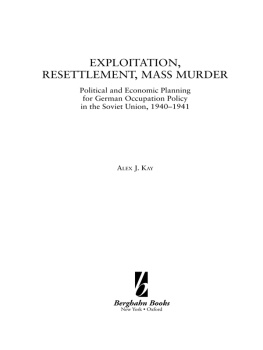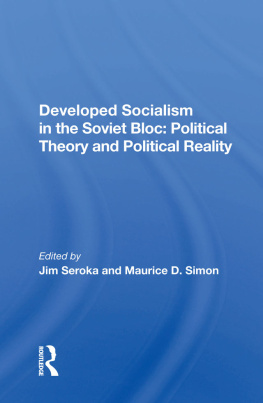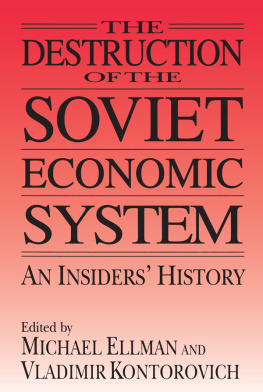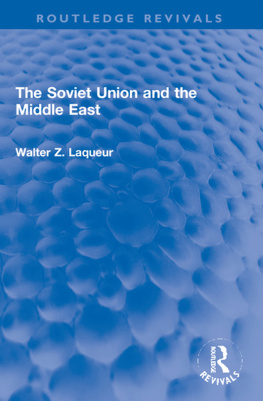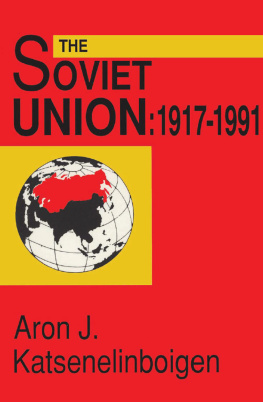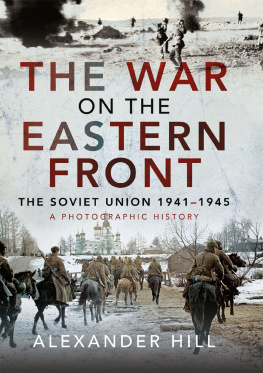
ACKNOWLEDGEMENTS
This book constitutes the revised version of my doctoral thesis, which was submitted to the Philosophical Faculty I of the Humboldt-Universitt zu Berlin under the title Neuordnung and Hungerpolitik: The development and compatibility of political and economic planning within the Nazi hierarchy for the occupation of the Soviet Union, July 1940-July 1941' in January 2005.
I would like, first of all, to thank my doctoral supervisor, Professor Dr Ludolf Herbst, for taking on the original project and lending his support throughout. The second marker, Professor Dr Rolf-Dieter Mller, provided me with a series of helpful comments on the thesis following its submission, for which I am grateful.
For their assistance during my regular archival visits, I would like to thank Frau Grner and her colleagues at the Bundesarchiv Berlin-Lichterfelde, where I carried out the bulk of my research, as well as the staffs at the Bundesarchiv- Militrarchiv (Freiburg im Breisgau), the Bundesarchiv Koblenz, the Institut fr Zeitgeschichte (Munich), the Politisches Archiv des Auswrtigen Amts (Berlin), and the Militrgeschichtliches Forschungsamt (Potsdam).
For reading substantial parts of the draft thesis and even, in some cases, the draft in its entirety, and providing valuable suggestions, I would like to express my appreciation to Dr Bob Moore, David Stahel, Dr Christoph Jahr and Dr Pertti Ahonen. Pertti was also a constant source of encouragement and good ideas.
Without Dr Marion Berghahn, Professor Omer Bartov, in whose series Studies on War and Genocide' this book appears, and all at Berghahn Books, the current work would have remained a doctoral thesis. For their commitment and hard work I am very grateful.
On a more personal note, I would like to thank my parents, Annette and Edward, for their constant support and interest. My father has been unceasing in his encouragement of my academic aspirations. My biggest debt, however, I owe to my partner, Valentina Farle. She has been of incalculable support in so many ways, particularly in shaping the environment which made both the research and the writing possible. This book is dedicated to her.

APPENDICES
1. Timeline of Key Events, July 1940July 1941
1940
| 3 July | Colonel-General Halder assigns Colonel von Greiffenberg, Chief of the Operations Department in the Army General Staff, to examine how to carry out a military strike against the Soviet Union in order to force recognition of Germany's dominant role in Europe. |
| 21 July | Hitler meets with the commanders-in-chief of the three branches of the armed forces, Field Marshal Keitel and General Jodl and speaks for the first time about the possibility of an invasion of the USSR. Hitler refers for the first time to the post-invasion occupation of Soviet territories. |
| 28 July | Rear Admiral Fricke, the Chief of the OperationsDepartment in the Naval War Staff, presents his Relections on Russia to Grand Admiral Raeder; Fricke argues that obtaining Lebensraum in the Soviet Union would secure Germany for the future by providing both the necessary living space' and those goods which are vital in wartime'. |
| 31 July | Hitler, addressing the heads of the OKW, army and navy, announces his definite decision to deal with Russia' in the spring of 1941. |
| 10 August | A military-geographical study of the European USSR produced by the Army General Staff judges the Ukraine to be both agriculturally and industrially the most valuable part of the Soviet Union'. |
| 26 September | During a one-to-one presentation for Hitler, Raeder proposes a Mediterranean strategy as an alternative to an invasion of the Soviet Union. |
| 10 October | In a report sent to Hasso von Etzdorf, the representative of the Foreign Office with the OKH, Gebhardt von Walther, an official in the German embassy in Moscow, argues that an occupation of the Ukraine, the Baltic and Belarus would be more of a burden for Germany's economic position than a help. The report is then passed on by Etzdorf to Halder, who, despite meeting with Hitler on 4 November, two days after receipt of the document, does not appear to bring it up. |
| 1 November | Lieutenant-General Erich Stud, head of the section Industrial Armaments of the Army in the Army Weaponry Office, meets with officers from various departments within the Wi R Amt to discuss the setting up of an organization to take care of the seizure of the most important military-economic industrial plants and raw material deposits' in the European USSR. |
| 6 November | Gring informs the top functionaries of the Four-Year Plan organization of the intentions of the political leadership towards the Soviet Union. |
| 1213 November | Soviet Foreign Minister Molotov visits Berlin for two days of discussions with Hitler, Ribbentrop and Gring. |
| 18 December | Hitler issues Directive No. 21: Case Barbarossa', in which he instructs the German armed forces to be prepared, even before the end of the war against Britain, to crush the Soviet Union in a rapid campaign.
Rosenberg gives Georg Leibbrandt, head of the Eastern Office in the APA, the task of drafting a plan for the possible future administration of the Soviet Union. |
| Christmas | Backe redrafts the RMEL's annual report on the food |
| holidays | situation in Germany; he feels that the first and second versions, produced in November and December 1940, respectively, do not portray the food situation dramatically enough. |
1941
| 9 January | In a speech to the military leadership, Hitler declares that the destruction of the Soviet Union, whose land offers immense riches', will leave Germany unassailable'.
Backe passes the RMEL's annual report on the food situation in Germany on to his superior, Reich Minister Darr, for the latter's signature; that same day, Darr forwards the report, just like every year, to Hitler via Head of the Reich Chancellery Lammers. |
| 13January | Backe gives Gring a presentation on the food situation.
Gring issues a circular announcing a reduction in meat rations, which is to come into effect on 2 June 1941. |
| 21 January | In a letter to Eichmann, the Gestapo's Jewish expert' in Paris, Theodor Dannecker, writes: In accordance with the will of the Fhrer, the Jewish Question within those parts of Europe ruled over or controlled by Germany shall be brought to a final solution after the war' in a yet to be fixed territory'. Heydrich, who had already received the task from Hitler, has submitted his suggestion for a Final Solution'. |
| 22 January | In response to doubts raised in theWi R Amt regarding the consequences of even a short interruption in the delivery of raw materials from the USSR, Thomas informs Keitel of his intention to prepare a paper detailing his misgivings. |
| 29 January | Gring presides over a meeting of his economic advisers and requests from those present their view as to the economic repercussions of waging war with the Soviet Union. With the exception of Backe, all respond negatively, arguing that the tremendous consumption of economic goods of all types that would be entailed by such a war [is] in no ratio whatsoever to the difficulties arising'. Backe, on the other hand, claims that large amounts of grain could be extracted from the Soviet territories. |

